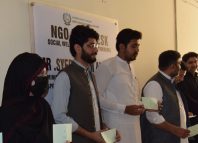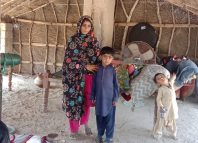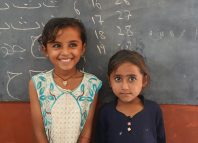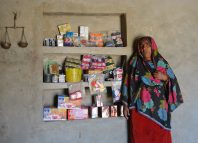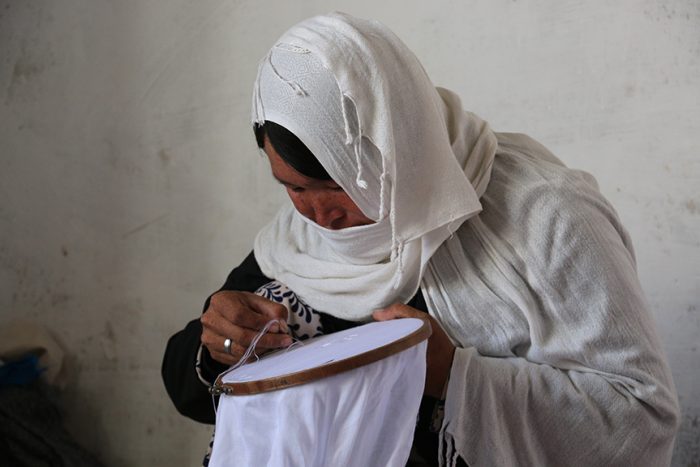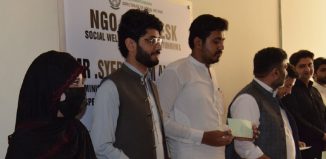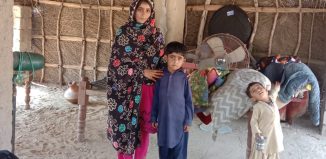COVID-19 leaves Zahra and her children without food and basic amenities
Zahra[1] lives with her husband and eight children in a small rental house in Sorkh Qul, a dry village located on a hill in the centre of Bamyan province. The house has a total of two rooms[2], and a corridor which is used as a kitchen equipped with a gas oven and some basic cooking utensils. For this space, Zahra and her family pay AFN 1500/- (Approx. USD 19) every month. The other room is lined with a shabby carpet in the center, along with some old household items stored in one corner.
“My family has been displaced multiple times due to our deteriorating housing conditions and a lack of job opportunities to support the family. The house rent was paid mostly by my husband through his earning as a farmer. Unfortunately, he has been suffering from dyspnea[3] for the last many years because of which he is now unable to work. With a ten-member family to feed and barely any income, we have had many worries and are now unable to pay the rent or meet any of the other vital family expenses. I am now the only bread-winner for the family and with the current COVID-19 situation, there are very few employment opportunities left for me.”
Zahra has been unable to find a job for the last many months and eventually resorted to asking neighbours for charity and left-over food to feed her family.
“My husband has worked hard for many years to sustain us so I do not blame him for our deteriorating situation, this is just fate. My only concern right now is to find food for my children and take care of my sick husband.”
There have been days this year when Zahra and her family have had to starve for three days without a single morsel of food.
“My children, aged between 15 and 3, are becoming weaker day by day. There was little help from the neighbours. However, a kind woman in the neighbourhood suggested that I approach Khadem, who is the chair of the Community Development Council. With his help, we approached some public and aid organisations but were unable to receive any immediate help. Khadem then introduced us to a local shopkeeper who helped us by directing people to contribute their Khoms[4] to our family. We were given a bag of flour and a barrel of frozen oil. This relieved me of my worries a little as I knew my children would not sleep with an empty stomach for at least a month now.”
Despite all the challenges the family is facing, Zahra still remains optimistic. She hopes for a brighter future for her children and aspires to provide a good education to her children so that they can be literate and build a better future for themselves. Three of her elder children, Muhammad, Zuleykha and Shakila, attend a local government school.
Zahra has recently found a job and is currently working on a potato field and sometimes sews napkins too through which she earns AFN 20 (Approx. USD 0.26) for each napkin. The COVID-19 pandemic has resulted in limited work opportunities for many daily wagers and white collared employees leading to thousands of families like Zahra’s without a livelihood and any sort of food security.
[1] A Temporarily Displace Person (TDP) family in Afghanistan
[2] There is a one room and a small hall.
[3] Dyspnea is the medical term for shortness of breath, sometimes described as “air hunger.”
[4] Religious term refers to 1/5 of someone’s income that can be given to Sadat (Ethnic group, also known as Syed) only

